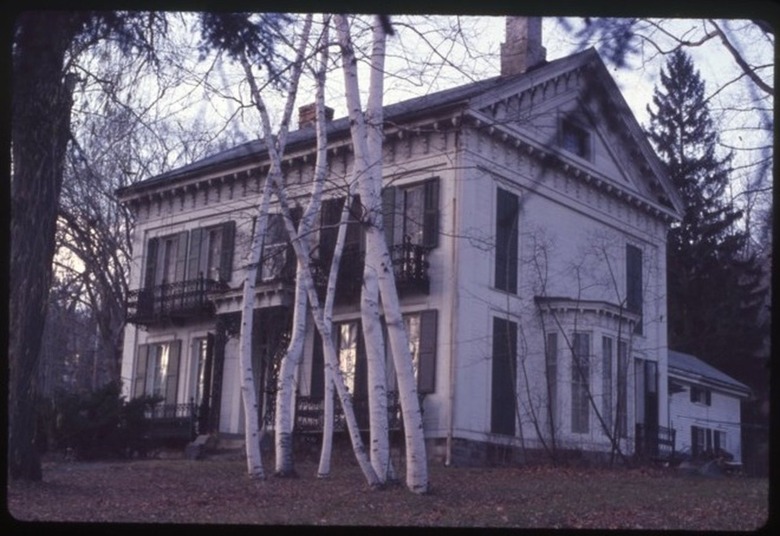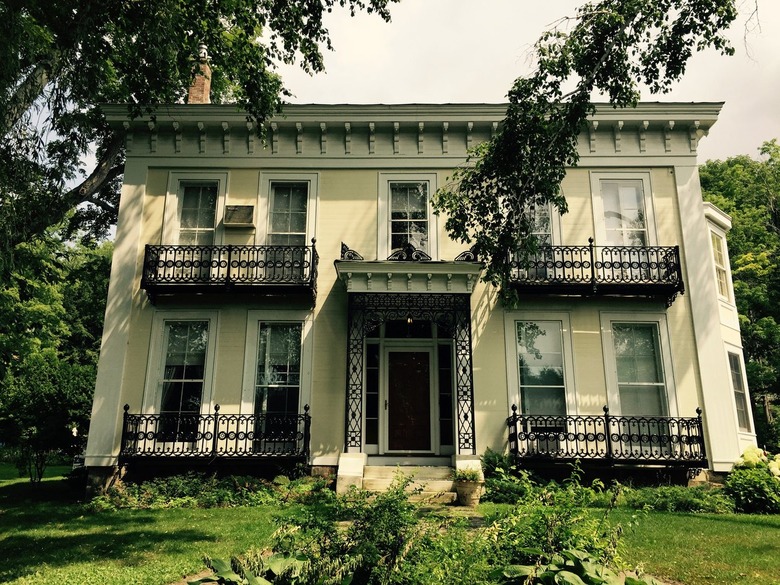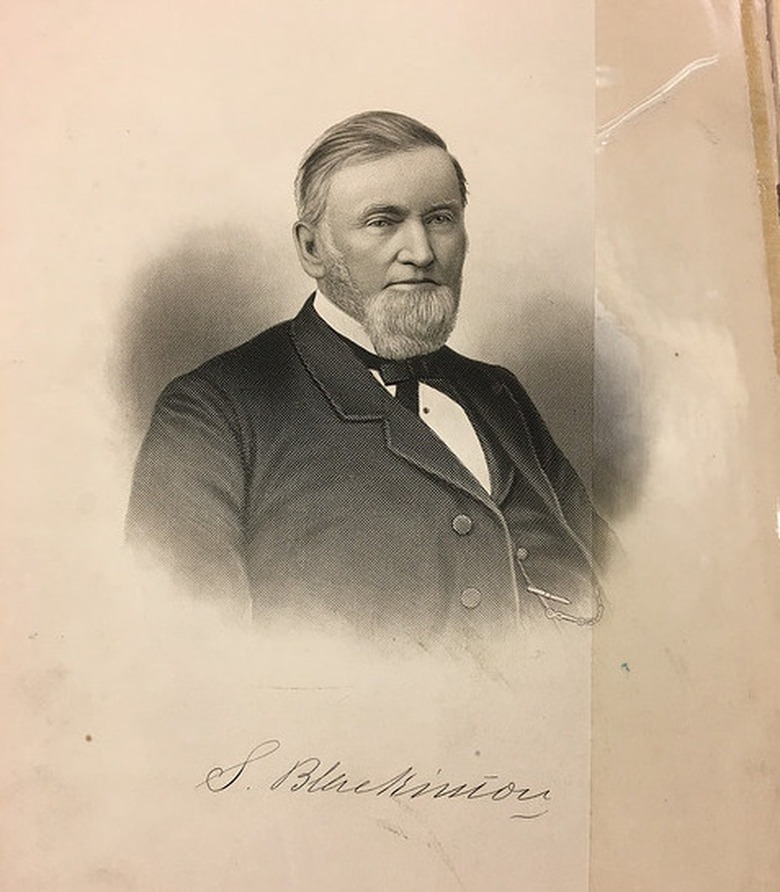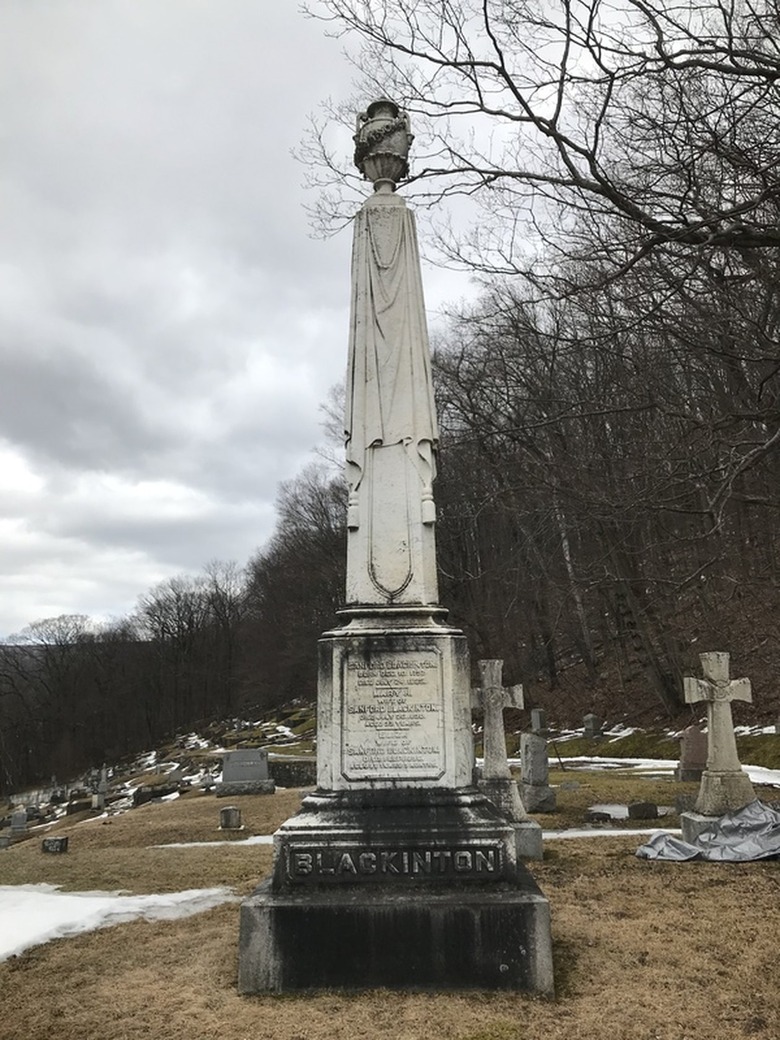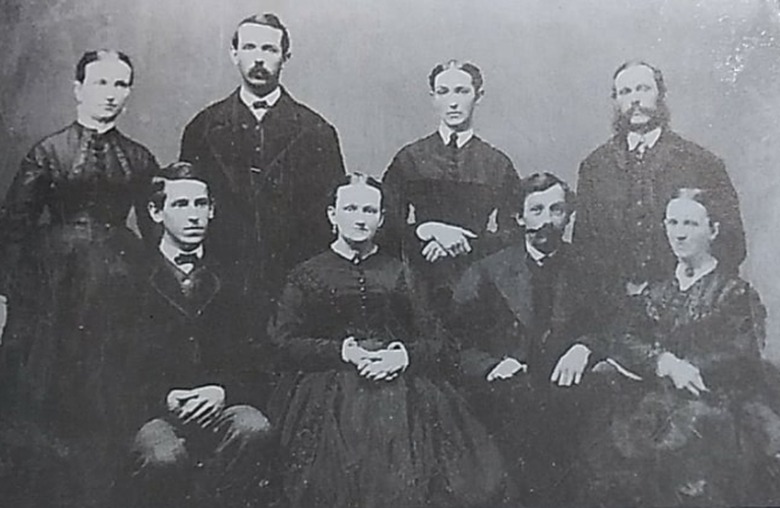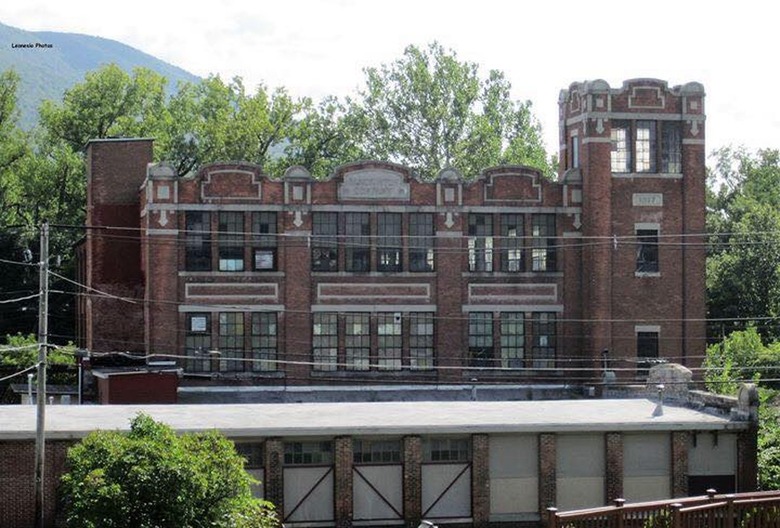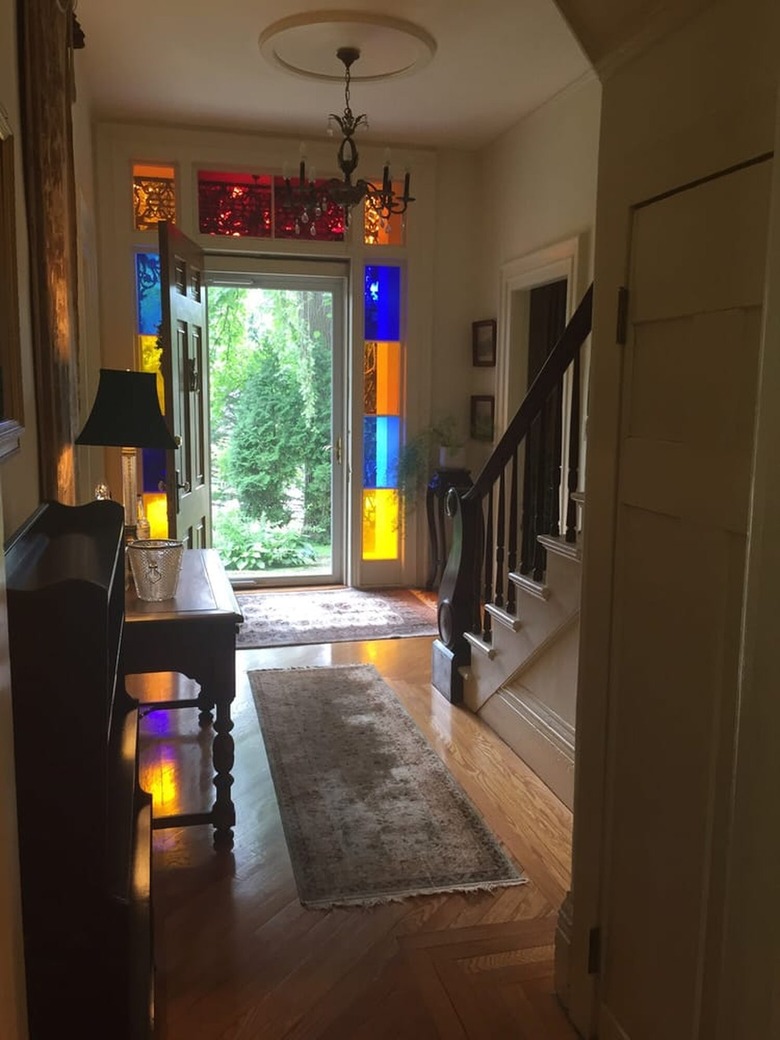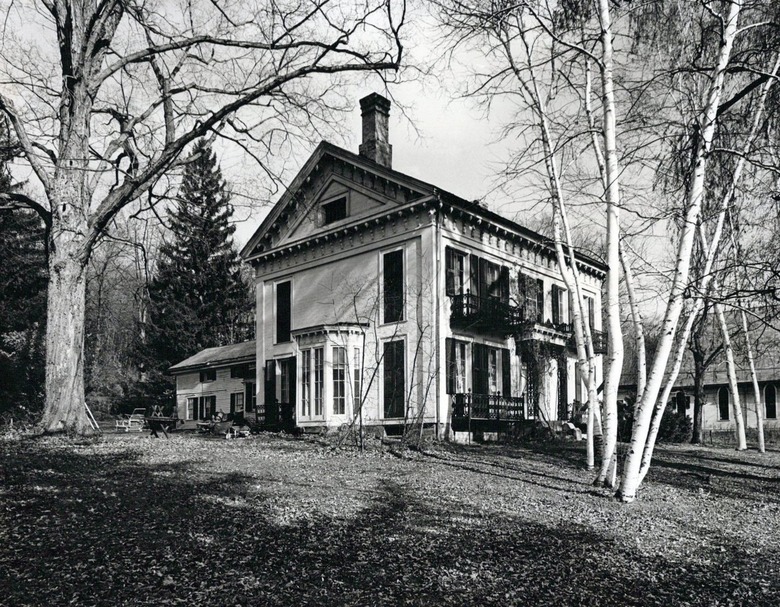I Grew Up In A Possibly Haunted 1832 Manor
In the mid-'90s, my parents would make a quick decision that would alter the course of our lives: They bought a circa 1832 deteriorating Italianate-Federal manor in North Adams, Massachusetts and turned it into a bed and breakfast. It wasn't quite Casper-level, but almost. It was clear that the home had once been elegant and opulent. It felt out of place for the neighborhood (or even the state) with its wrought iron balconies and floor-to-ceiling pocket windows; it could have been plucked out of the Garden District of New Orleans.
Vacant for many years, the vegetation grew wild; inside was turmoil, debris scattered everywhere, discolored carpet, and some truly garish '70s touches. On the exterior, false, closed shutters were actually boarded up windows (a means to reduce property taxes in ye olde days). But underneath it all were hints of a different era: a grand, winding staircase, a carved marble fireplace, a trap door in the kitchen leading to a cistern.
After a gut restoration, my parents opened the doors to guests, naming it Blackinton Manor, after Sanford Blackinton, the home's first resident.
Blackinton was a successful businessman who built his wealth in textile manufacturing; he owned the mill down the street (which, fully abandoned in the '90s, was eerie with all its broken windows, decaying brick, and overgrown trees). This entire corner of North Adams was called Blackinton due to Sanford's economic influence on the village and his mill workers. During the Civil War, Blackinton profited greatly, manufacturing fabric for Union soldiers. A pious man, his dwellings nevertheless increased in extravagance as his wealth grew; his third and final home was an opulent second empire-style stone mansion in the downtown center, away from his mill and workers.
We lived in the shadow of Sanford's past. Every day on my walk to the bus stop, I'd pass by his mill and wonder what old papers or objects were left behind after it shuttered.
My friends and I would play in the cemetery a few blocks away where the slanty marble tombstones were dominated by the Blackinton name.
The graves topped with carved lambs indicated deaths of children, two of whom were Blackinton's; one at age 6, the other at 2. While Blackinton himself lived to an old age, he'd also see the death of his first wife along with the passings of his two other children. One of them, William, was living in Blackinton Manor at the time, and died at age 52 under uncertain circumstances — a supposed food poisoning at a dinner party. An 1875 issue of the Boston Daily Globe reads:
"No official examination has yet been made into the cause of the singular sickness...the homeopathic doctor attending Mr. Sanford Blackinton states that he has found evidence of poisoning by oxalic acid. Mrs. Blackinton had a bottle of that acid in the house labelled poison, but says it could not possibly have got into the victuals...the intelligent part of the community are settling down to the opinion that the whole trouble was caused by the unwholesome mixture of viands, and aided by the particular state of the weather..." — Boston Daily Globe
A couple years went by without ghostly incident, although you'd often feel transported to the mid-1800s, or even just hyper-aware of the many Blackintons who had passed through this place. I found myself drawn to a certain spot in the living room that held a sense of mystery when the house was completely quiet. We had a psychic stay with us once, who informed us that there was a friendly presence in the house: a woman who passed from cancer (within more recent years) at an old age.
The first thing to happen was with the attic door: In the middle of the night, it slammed shut with a bang so intense you could feel it through the walls. My mother immediately called the police who came for a look around and determined that the door had been left open and the wind had pushed it shut. My mother glared at me, as I was known to explore around the attic, but I didn't remember having played up there or leaving the door open that day.
After my parents turned the attic into their own master bedroom suite, something weird happened: I was lying down on my stomach on my parents' bed (most likely daydreaming about my middle school crush) and I felt something cool drape over one bare leg, almost like a satin sheet that had been left in the freezer. It was a mild summer evening and so it startled me; as I moved to swat whatever it was, it felt as though that cold sheet was being quickly snatched away.
But the most fascinating story came via one of our staffers, Tina*. One day, she was cleaning in the living room, and saw a woman in an old-timey-looking black gown entered. Tina wasn't alarmed — our door was open and people often stopped by asking to look at our rooms — and so Tina asked the woman in the black dress if she could help her. There was no response and the woman then walked through a built-in, arched shelf in the dining room — it was a little nook where we displayed dishes. Tina was such a true and trustworthy person, I'd never doubt anything she asserted.
At some point later that year, a local historian visited our house and informed us that the dining room archway would have originally been a door. That felt like the world stopping, and the whoosh of experiencing the most mind-blowing realization: the wall she walked through had once been a doorway.
At Halloween, we'd open the front door, and my father, a concert pianist, would dress in his formal tails suit, whiten his face to look like Dracula, and move the harpsichord into the grand foyer where he'd play Bach's Toccata and Fugue in D minor. The older neighborhood kids lost their minds; the younger ones screamed in fright and ran away.
Years later, I still find myself wondering who that woman could have been. Perhaps Sanford's second wife, Eliza, mourning her husband's passing in 1885? Or even William Blackinton's wife stewing over her husband's sudden (maybe food) poisoning death?
Throughout it all, we never sensed a menacing presence in the house. If anything, there was the imprint of a long lineage and, at most, a sense of sorrow for a family that had gained and also lost so much.
As a fun aside: At Halloween, we'd open the front door, and my father, a concert pianist, would dress in his formal tails suit, whiten his face to look like Dracula, and move the harpsichord into the grand foyer where he'd play Bach's Toccata and Fugue in D minor. The older neighborhood kids lost their minds; the younger ones screamed in fright and ran away.
Eventually, after spending over a decade as owners of the house, my parents decided to sell Blackinton Manor — our time there had come to an end. Yet Blackinton Manor stays with me — I dream about it at least once a week. And, in recent years, it feels as though the house has been calling me to visit.
Luckily for me (and for you), Blackinton Manor still runs as a B&B, and you can book the entire house via Airbnb.
